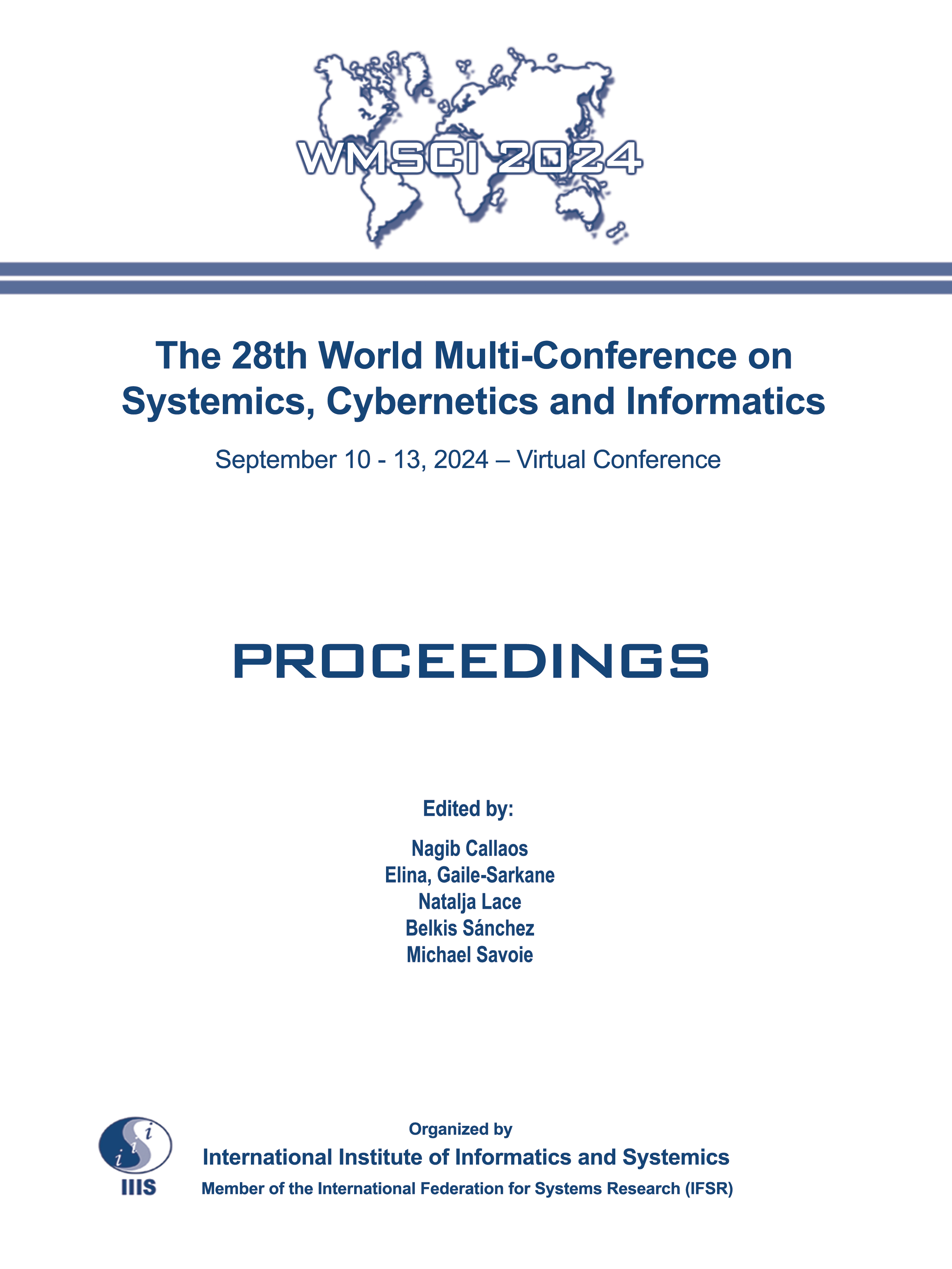2024 Summer Conferences Proceedings

|
Navigating the Digital Frontier: Ukraine's E-governance Curriculum Amidst Crisis and EU Integration
Nataliia Morze, Rusudan Makhachashvili, Viktor Zvonar, Liudmyla Ilich, Mariia Boiko
Proceedings of the 28th World Multi-Conference on Systemics, Cybernetics and Informatics: WMSCI 2024, pp. 4-9 (2024); https://doi.org/10.54808/WMSCI2024.01.4
|
The 28th World Multi-Conference on Systemics, Cybernetics and Informatics: WMSCI 2024
Virtual Conference September 10 - 13, 2024 Proceedings of WMSCI 2024 ISSN: 2771-0947 (Print) ISBN (Volume): 978-1-950492-79-4 (Print) |
|
Abstract
The study tackles the limits of understanding of EU e-governance principles and practices in Ukraine, since strong EU aspirations of the country are challenged by the warfare threatening the nation existence. The struggle of Ukraine against Russian invasion revealed the benefits of previous digitalization efforts in the public sector. However, civil servants and citizens in the country still feel the urgent need of enhancing digital competence. The public sector developed a clear understanding that further reforms must be aligned with EU experiences and expectations, and a proper expertise is called for. Thus, the research objective is to highlight and disseminate EU experience and best practices of the transition to e-governance. The research project e-DEBUT helps promote EU values of transparency, participatory democracy, and inclusiveness through strengthening the digital community in Ukraine. The study aims to develop an innovative curriculum to enhance skills and competencies of civil servants, enrolled in master’s programs, needed for effective rendering of public e-services in war-time, and transferring knowledge of the tech trends and best e-governance practices of EU countries. The project's meaningful results are: a course syllabus, summer schools’ curricula, and a workshop on the facets of development of e-governance in EU countries and in Ukraine; open digital educational resources and analytical materials; a manual for civil servants on the use of e-governance tools under martial law and through post-war reconstruction of Ukraine. The centerpiece of the study is the development of the study module, covering EU lens on concepts of e-governance and digital state, EU technological trends for e-governance, EU best practices in rendering e-governance for business and citizens, as well as the investigation of the adaptation of EU experience in the use of artificial intelligence and smart city infrastructures to the managerial needs of the country at war.
|
||




